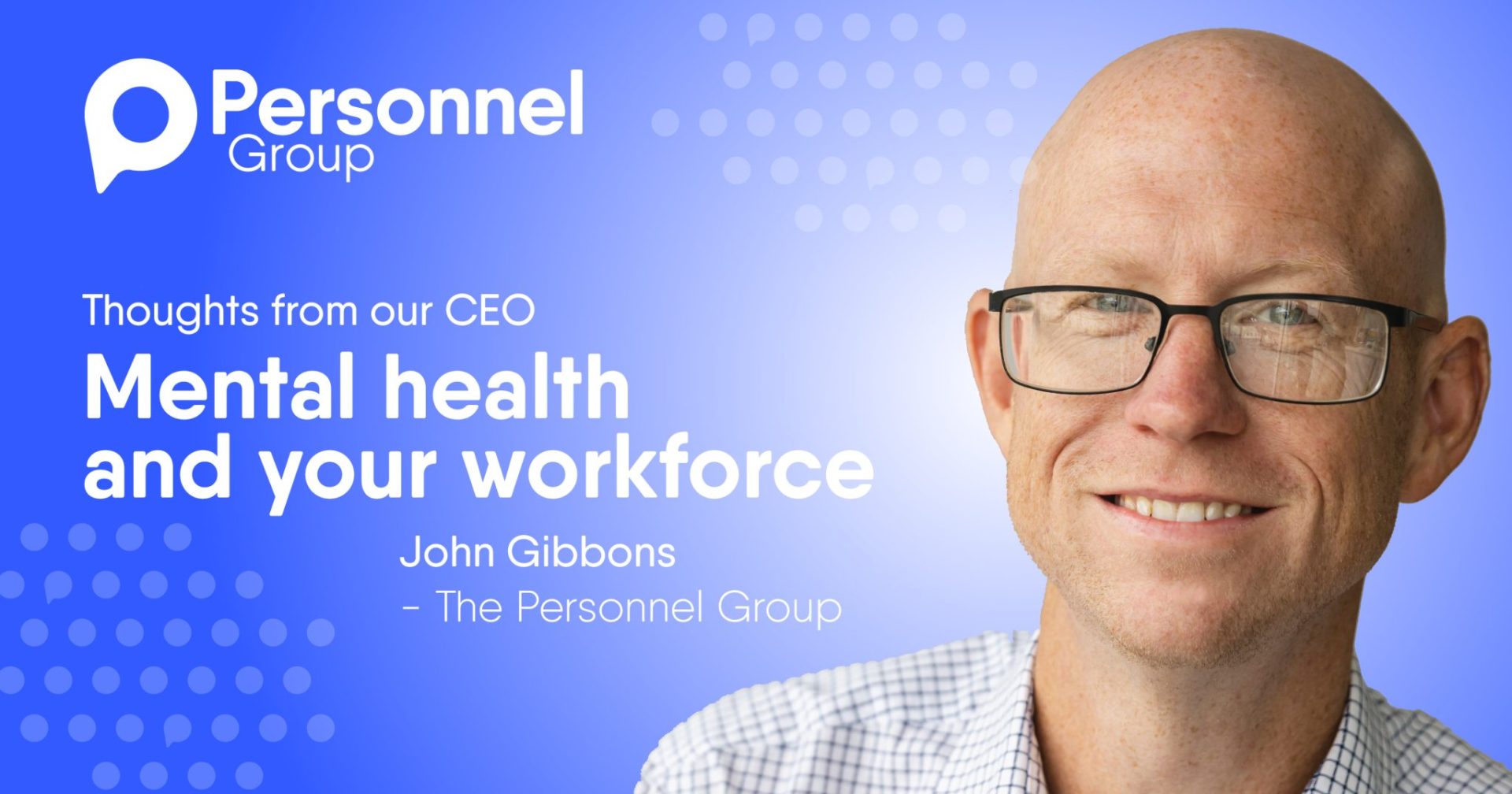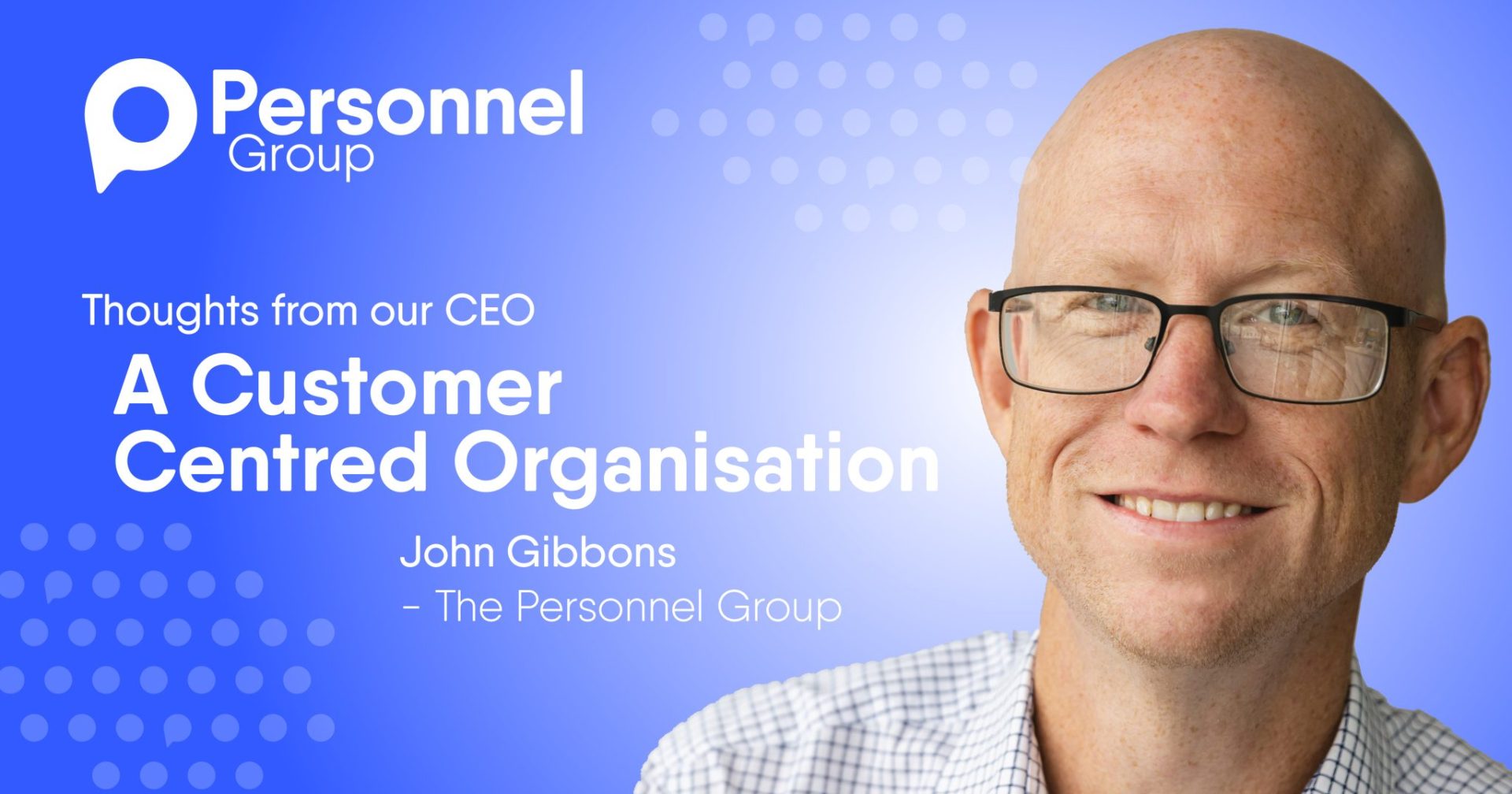Workplace Mental Health

Workplace Mental Health
Oct 22 2022
5min read
Today I want to reflect on the impacts of mental health on employers and their workforce.
In my previous blog I spoke about Mental Health and its impact on our ability to deal with stress and challenges.
A collision of circumstances has seen Australia’s employers grappling with higher turnover, higher absenteeism and lower productivity than in recent memory.
Where the COVID-19 pandemic began as a health issue, it has had far-reaching societal, fiscal, and emotional ramifications on the population. Stress resulting from extended periods of disruption, fear and uncertainty has left many workers with reduced mental health and resilience. This means they are more likely to take leave or change jobs when they become overwhelmed.
At the same time, historically low unemployment levels mean workers have an increased choice of employer. This results in more workers changing employers and career direction than ever before.
These factors create an environment where employers have difficulty meeting their outputs, given the reduced access to labour stability. Examples include the construction industry, which has seen a high volume of approved works yet continues to have backlogs and delays because labour cannot be sourced, or the retail and hospitality sector, where demand is high, but shops are closed because workers are not available.
So, what can Australia’s employers do to overcome these challenges?
I believe that it is not only the role of an employer to ensure their workplace supports their team’s mental health but would argue that if they don’t – they are potentially sacrificing productivity and profit.
A happy, healthy, productive, and present workforce is essential in seizing the opportunities of Australia’s rebounding economy.
Achieving this begins with employers being willing to review their workforce culture and exploring how it impacts the wellness of their team. Is the team well supported? Is the work reasonable? Are team members appropriately rewarded? Is there sufficient training? Too frequently employers blame their workers for the emerging gaps in their labour force without considering whether the workplace contributes to the issue.
Today’s employers must also educate themselves and their organisation’s leaders about mental health. This might include calling in mental health experts to educate and support a mentally healthy workplace. For example, The Personnel Group works with several employers to deliver the Federal Government’s Work Assist program. In this service, employers and workers are supported to overcome issues arising from their disability or mental health condition.
Ultimately the key is to plan. To review, benchmark and act. The Personnel Group is happy to work with any employer to consider appropriate supports and connect them with external supports if needed.
Support is available if you want to discuss your mental health, such as:
- Lifeline: 13 11 14
- Suicide Call Back Service: 1300 659 467
- Beyond Blue: 1300 224 636
- MensLine Australia: 1300 789 978
- Kids Helpline: 1800 551 800
share

Explore more topics
Career transition assistanceCEO BlogCommunity championsCommunity PartnershipsCorporate identityNew CategoryNewsSuccess storiesWorkplace support

Sign-up to our newsletter
Once a month, discover the most valuable information and news on employment and health


